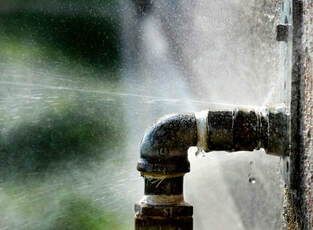They are making a number of great pointers about Locating water leaks as a whole in this article on the next paragraphs.

Early detection of leaking water lines can mitigate a possible calamity. Some tiny water leakages may not be visible.
1. Analyze the Water Meter
Examining it is a surefire method that assists you discover leaks. If it relocates, that shows a fast-moving leakage. This indicates you may have a slow leakage that can even be below ground.
2. Check Water Consumption
Examine your water costs and track your water consumption. As the one paying it, you ought to discover if there are any type of disparities. If you spot sudden changes, in spite of your consumption being the same, it implies that you have leakages in your plumbing system. Remember, your water bill should drop under the very same variety on a monthly basis. An unexpected spike in your costs suggests a fast-moving leakage.
On the other hand, a steady increase on a monthly basis, even with the same routines, shows you have a slow-moving leak that's also slowly escalating. Call a plumber to completely check your building, specifically if you really feel a cozy area on your flooring with piping below.
3. Do a Food Coloring Test
When it comes to water usage, 30% comes from commodes. If the shade somehow infiltrates your dish throughout that time without flushing, there's a leakage between the tank and also bowl.
4. Asses Outside Lines
Don't fail to remember to inspect your outdoor water lines also. Should water seep out of the link, you have a loosened rubber gasket. One small leakage can waste bunches of water and spike your water expense.
5. Assess the circumstance as well as examine
Home owners must make it a behavior to check under the sink counters and also also inside cupboards for any kind of bad odor or mold growth. These two red flags indicate a leak so timely interest is required. Doing regular assessments, also bi-annually, can save you from a major problem.
Extra notably, if you know your home is currently old, keep a watchful eye on your heating units, hoses, pipelines etc. Look for discolorations as well as damaging as the majority of devices and pipes have a life span. They will additionally normally wear away as a result of deterioration. Do not wait for it to escalate if you presume dripping water lines in your plumbing system. Call a professional plumber immediately so you don't wind up with an awful mess in your home.
Early discovery of dripping water lines can minimize a potential disaster. Some little water leakages might not be noticeable. Checking it is a guaranteed means that helps you discover leaks. One small leakage can throw away lots of water and increase your water expense.
If you believe leaking water lines in your plumbing system, do not wait for it to intensify.
How to Know If Your Home Has a Hidden Leak
Water Meter Reveals Inexplicable Water Usage
If you’d like to test whether or not there’s a leak somewhere in your home, you can do this using your water meter. Here is how to conduct the test:
Don’t use any water in your home for at least 30 minutes; this also means not turning on faucets or water-using appliances.
Go outside, and check your water meter for activity.
If your water meter shows that there was activity, even though no one was using any water, this proves that there is a leak in your home.Visible Mold or Mildew Growth
Leaks behind walls create moist, dark environments that allow mold and mildew to grow and thrive. Eventually, you might see mold growth forming on the wall closest to a hidden leak.
If mold is growing in an area that receives a high amount of moisture, such as a bathroom, it may simply be an indication that better ventilation is needed. However, if you see mold growth on a wall or the ceiling in an area where you would not expect, you probably have a hidden leak.
Musty, Mildew Odor
Sometimes you might not be able to see the mold or mildew that is growing as a result of a leak. However, the smell can give the problem away just as easily. If you catch a whiff of something musty, there’s a good chance that old water is collecting somewhere in your home that you can’t see.
Stained/Warped Walls, Ceilings, or Floors
When your home soaks up water, a variety of red flags can become visible, including ceiling stains, bubbling drywall, warped walls, and sagging floors. While these issues can be caused by excess humidity, they can also be signs that a pipe or plumbing connection has started leaking behind your walls.
Inexplicably High Water Bill
After a while, you get a general sense for what your water bill should be. If you own a pool or sprinkler system, your bill will tend to be higher during summer. However, if you receive a water bill that seems especially high, and you can’t figure out what caused it, then you may have a hidden leak somewhere that’s increasing your bill.
https://www.plumbingjoint.com/blog/2019/july/how-to-know-if-your-home-has-a-hidden-leak/

As a fervent person who reads about Finding hidden leaks, I thought sharing that portion was beneficial. Don't hesitate to take the opportunity to promote this blog posting if you appreciated it. Many thanks for your time spent reading it.